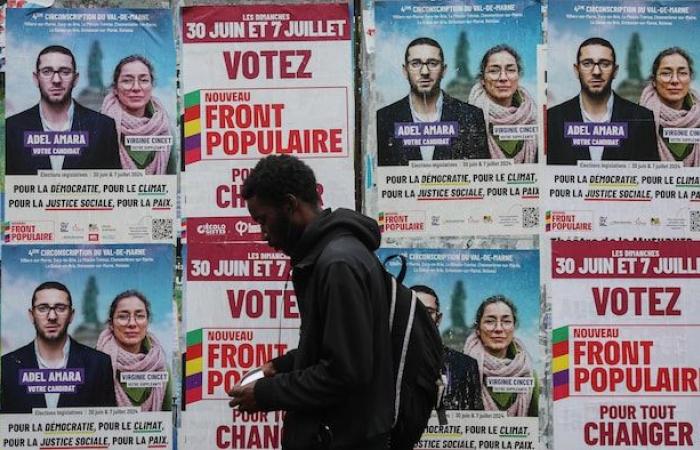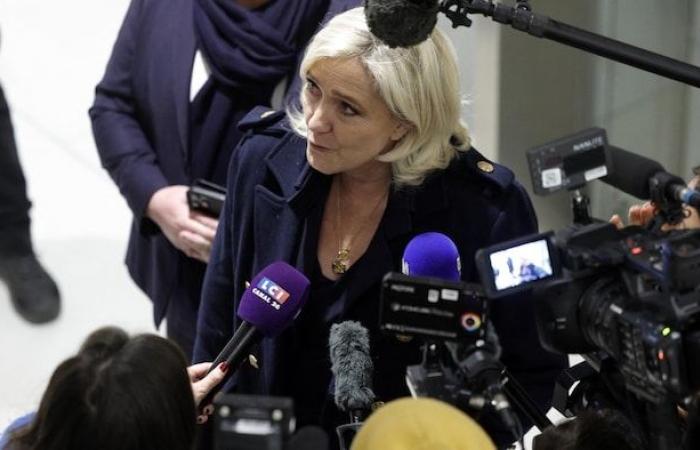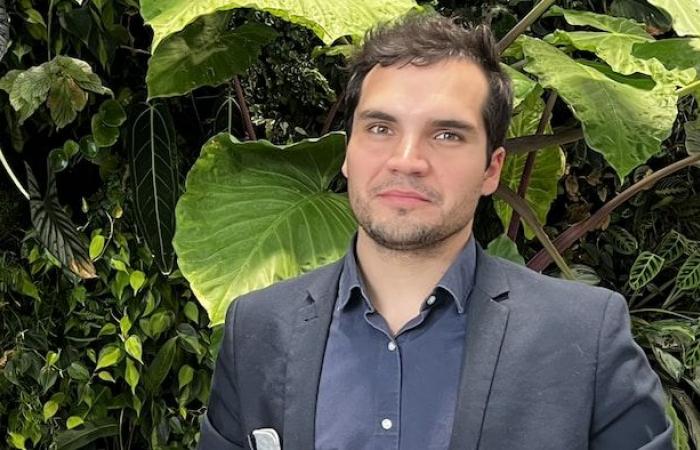Unhappy with changes to the social security system, left-wing and far-right parties in France have announced they will support a no-confidence vote to be held at 1 p.m. EST on Wednesday that could bring down the government. Explanations in four steps.
1- What is happening in France?
To understand the political uncertainty that predominates in France, we must return to the legislative elections of last summer, where no political bloc won an absolute majority. Even though the New Popular Front came out on top, this left-wing coalition (La France insoumise, the Socialist Party, the Communist Party and the ecologists) was not invited to form the government. President Emmanuel Macron notably judged that the La France Insoumise party was radical and could not enter the government.
The National Rally (RN), a far-right group whose figurehead is Marine Le Pen, is the party which won the most seats in the July elections, but not enough to obtain a majority. President Emmanuel Macron, after several weeks of negotiations, ended up appointing Michel Barnier (Les Républicains) at the head of a right-wing government.
Open in full screen mode
The French are divided politically.
Photo: AFP / EMMANUEL DUNAND
This government quickly found itself in the hot seat, since it lacked around sixty seats to have its projects adopted.
The left and the far right had promised from the start to quickly bring down the government, and they could keep their promise on Wednesday. At the start of the week, Prime Minister Barnier had in fact held his government responsible for adopting the Social Security budget without a vote, as provided for in the Constitution, thus exposing himself to a vote of censure.
Engage your government
it’s the equivalent of a vote of confidence in Canada: it’s make or break.
And, in this case, it could break, since the left and the RN filed motions of censure against the Barnier government on Tuesday. They will be debated on Wednesday starting at 4 p.m. (10 a.m. EST) and the vote is expected around 7 p.m. (1 p.m. EST).
2- What is the government accused of?
While France is seeing its public deficit widen more than expected this year (around 5.6% of GDP, against 3.5% in the euro zone), the Barnier government advocates budgetary austerity (even if it denies it), and this goes badly in France.
The temporary deindexation of pensions to inflation was the straw that broke the camel’s back
summarizes Julien Robin, doctoral student in political science at the University of Montreal and affiliated member of CERIUM.
The government did try last-minute maneuvers, particularly with regard to the plan to reduce state reimbursement for medicines in 2025, in order to convince the National Rally not to turn to censorship, but this did not will not have been enough. THE RN also demanded that pensions remain indexed to inflation, which he did not obtain.
The one and only
reason which guides the choice of the extreme right formation is that of protect the French from a dangerous, unjust and punitive budget which, moreover, aggravates the already monstrous deficits of seven years of macronism
declared Ms. Le Pen on X on Tuesday.
Open in full screen mode
Marine Le Pen speaks to journalists in November 2024.
Photo: afp via getty images / GEOFFROY VAN DER HASSELT
According to Laurent Saint-Martin, Minister of Budget and Public Accounts, the government has always been open to negotiation.
What I observe is that now we are no longer in a dialogue on the other side. We are under constant pretexts.
While traveling in Saudi Arabia, President Emmanuel Macron denounced the unbearable cynicism
of RN if he voted for the motion tabled by the left. And he accused the Socialist Party of showing complete loss of bearings
. He also dismissed calls for his own resignation.
3- What will happen on Wednesday?
To bring down the government, 288 votes (289 usually) out of 577 will be necessary. This would be a first since 1962. Barring a spectacular reversal, the motion of censure has every chance of being approved, an opinion that Prime Minister Barnier does not share.
I think it is possible that there is this reflex of responsibility where, beyond political differences, divergences, contradictions normal in a democracy, we say to ourselves that there is a higher interest
he declared Tuesday evening in a speech.
We must expect a majority vote against the government
believes Julien Robin for his part. Because even if MPs are not required to follow a party line like in Canada, the desire for change is strong
.

Open in full screen mode
Julien Robin, doctoral student in political science at the University of Montreal and affiliated member of CERIUM.
Photo: Provided by Julien Robin
Among other possible scenarios, Mr. Robin does not see a majority of socialists breaking the left pact and abstaining from voting, because they would have a lot to lose. And on the side of RN, political uncertainty is welcome
since it shines the spotlight elsewhere than on the party’s legal troubles. These could in particular result in a period of ineligibility for Ms. Le Pen.
If the Barnier government falls, the prime minister will be required to resign to President Macron and the latter will have to find another prime minister. It will not be easy, because each of the three big blocs (united left, presidential camp and far right) is capable of withdrawing and bringing down the government. Furthermore, the culture of consensus is not inADN politicians.
It is also impossible for the French president to call new elections, because we have to wait a year before the next dissolution of the National Assembly, next summer
explains Mr. Robin.
4- What will be the economic consequences?
If the government falls, it will not have had time to adopt the 2025 budget which planned to reduce its public deficit to 5% of the GDP, in order to partly satisfy demands from Brussels. However, the storm
feared by the government will not necessarily take place, according to some economists.
A possible new prime minister could decide to adopt a watered-down budget, with concessions to the opposition parties, or renew the 2024 budget identically with a freeze on state spending. While this measure would allow savings of $20 to $27 billion, it would also have the consequence, among other things, of harming services in the regions.
And since social spending is indexed to inflation and the government could not pass its surtax on very high incomes and the profits of large companies, the State would be deprived of 30 billion dollars.
The consequences of censorship could cost us the trust of our creditors and our neighbors.
Political uncertainty is so far estimated at 0.2% of GDP for 2025, according to the French Observatory of Economic Conditions.
This uncertainty will also have consequences on the financial markets. After the French Prime Minister held his government accountable on Monday, the rate of the French public loan over 10 years immediately climbed, going from 2.86% to 2.92% in a few hours.
With information from Associated Press, Agence France-Presse and Reuters








